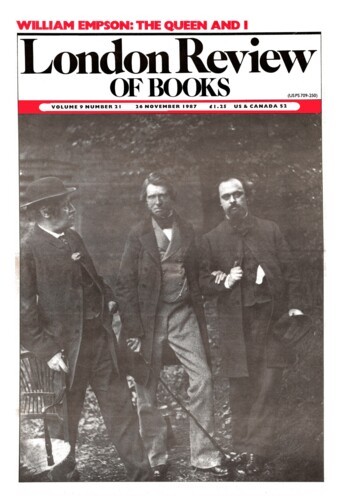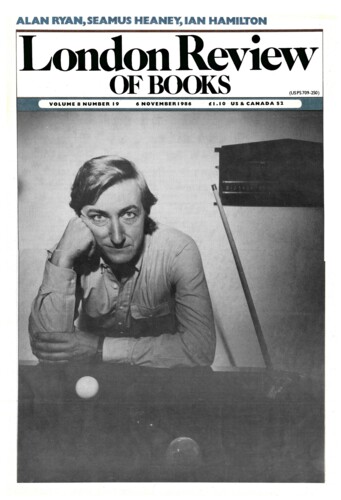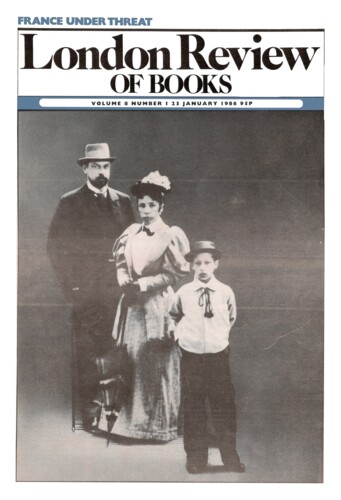Institutions
Alan Ryan, 26 November 1987
The history of thinking about political institutions and political behaviour has for two millennia oscillated between two opposed poles. Realists have seen politics in defensive terms: human nature being what it is, the state is a shelter from violence and disorder. In good times, human ingenuity and effort will take advantage of that shelter to lead a prosperous existence, to create high culture, and to enjoy all the multifarious pleasures of private life. But the basis and the essence of politics is the need for protection against violence, either domestic or external. Domestic order is precarious; external relations are the terrain of force, not justice. The wonder is not that governments fall far short of their ambitions, but that they so often succeed in maintaining good order and allowing their citizens to look after themselves in peace. Idealists have retorted that human nature is what it is only because our institutions are corrupt; the state can play much more than a defensive role. In particular, a well-designed state can create a more amenable human nature, can organise prosperity rather than leaving it to the accident of individual initiative, can promote private and public virtue. Thucydides’s history of the Peloponnesian War is one of the permanent achievements of the realist tradition, Plato’s Republic a permanent achievement of its rival. Marx, as so often, united opposed traditions by agreeing with the realists that politics has hitherto been little more than the substitution of class oppression for overt war, while announcing the imminent arrival of the freedom, justice and self-fulfilment preached by the idealists.





